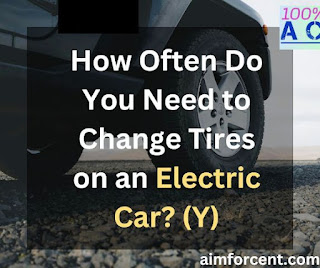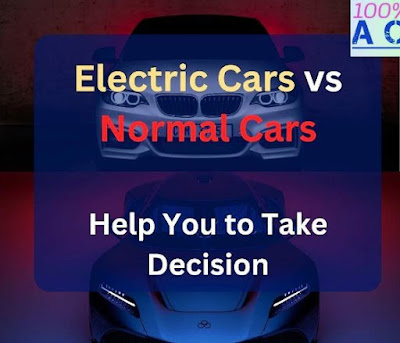Are Electric Vehicles Really the Future of the World?
Electric vehicles have been hailed as the future of transportation, with many governments and companies around the world making significant investments in their development and deployment. Are electric vehicles really the future of this world? In this blog, I am going to explore the benefits and challenges of electric vehicles and their potential role in the future of transportation.
The Benefits of Electric Vehicles in Today’s World
Electric vehicles offer several benefits over traditional gasoline-powered vehicles, including:
Reduced Emissions
Electric vehicles produce fewer emissions than gasoline-powered vehicles, making them a cleaner option for transportation. According to scientists’ research report, transportation is one of the largest sources of greenhouse gas emissions, so the use of EVs will reduce the emissions.
Reduced Dependence on Fossil Fuels
Electric vehicles can be powered by renewable energy sources such as wind and solar power, reducing our dependence on fossil fuels. It also strengthens the economy by reducing the impact of volatile oil prices on the economy.
Lower Operating Costs
Electric vehicles are generally cheaper to operate (EVs have a high upfront cost, which I will discuss later) than gasoline-powered vehicles because electricity is less expensive than gasoline. Besides that, electric vehicles require less maintenance than gasoline-powered vehicles, as they have fewer moving parts and do not require oil changes.
Improved Performance
Electric vehicles can provide excellent performance with instant torque and smooth acceleration. They can also be quieter than gasoline-powered vehicles, reducing noise pollution.
Increased Energy Efficiency
Electric vehicles are more energy-efficient than gasoline-powered vehicles, meaning they can travel further on the same amount of energy. It reduces the need for frequent refueling, which increases the range of electric vehicles.
Do Not Forget the Challenges of Electric Vehicles
Despite their many benefits, electric vehicles still face several challenges that need to be addressed before they become the primary mode of transportation. These challenges include:
Higher Upfront Costs
Electric vehicles can be more expensive than gasoline-powered vehicles, primarily due to the high cost of batteries. It makes them less accessible to many consumers, particularly those with lower incomes.
Range Anxiety of the EV Users
Electric vehicles have a limited range, so you cannot travel long distances with a single charge. That means gasoline-powered vehicles are more suitable as primary cars. Indeed, it creates anxiety among drivers, who are concerned about running out of power while driving.
Charging Infrastructure
Electric vehicles require charging infrastructure to be installed in public places, workplaces, and homes to enable widespread adoption. The lack of charging infrastructure can be a significant barrier to the adoption of electric vehicles, particularly in rural areas.
Battery Technology
Electric vehicles rely on batteries to store energy, and battery technology is still evolving. While battery technology has improved significantly in recent years, batteries still have limited lifespans and can be expensive to replace.
Electricity Generation Process
Electric vehicles are only clean because they use electricity. Now think about an area where electricity is generated primarily from fossil fuels. In such a case, electric vehicles may not provide significant emissions reductions compared to gasoline-powered vehicles.
What is the Future of Electric Vehicles?
Despite these challenges, electric vehicles are likely to play a significant role in the future of transportation.
Governments around the world are increasingly investing in charging infrastructure and offering incentives to encourage the adoption of electric vehicles.
Battery technology is also rapidly improving, with new innovations that could significantly reduce costs and increase the range of electric vehicles.
Are you interested in buying an electric vehicle? Please do not forget to read my other blogs too:
How Long Does Electric Car Battery Last?
Is It Better to Buy a Petrol Car or Electric Car?
Meet Rohan, a writer who loves to inspire and motivate others. He’s all about those feel-good quotes that can light up your day! When he’s not crafting words of encouragement, Rohan dives into the world of the latest technologies, exploring what’s new and exciting. But that’s not all—his heart beats for solar products, the kind that harness the power of the sun for a greener future. And guess what? He’s a total pet lover too! When he’s not busy writing, you’ll find Rohan surrounded by his furry friends, spreading joy and cuddles all around. Follow Rohan on Twitter and Facebook






